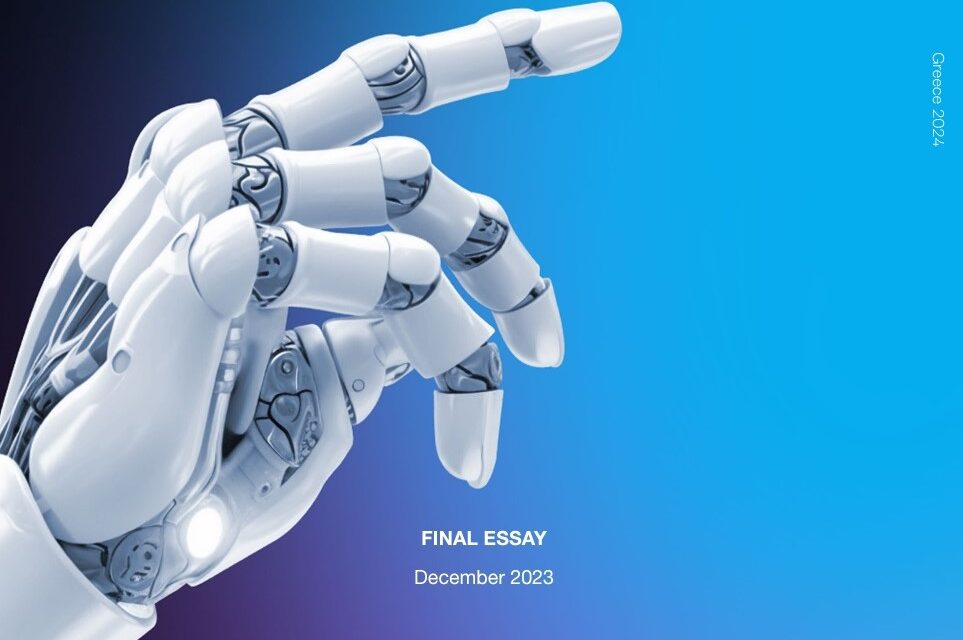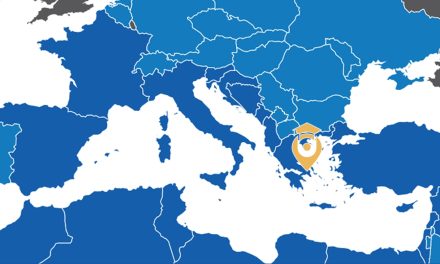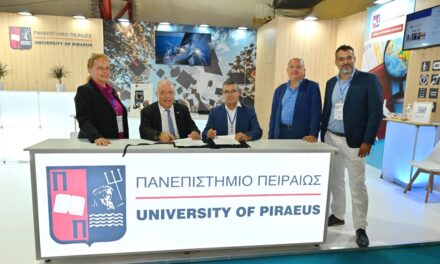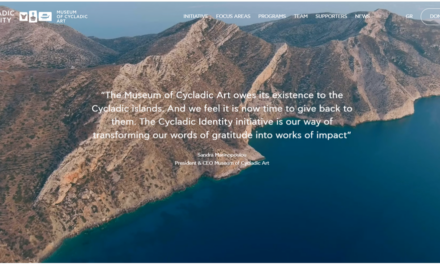The first smart building dedicated to Artificial Intelligence and Telecommunications is under construction at the campus of National Research Center for Natural Sciences “Demokritos” in Athens. Newspaper “I Kathimerini” spoke to Dr. George Nounesis, Director & Chairman of “Demokritos” and reports on this very exciting new project:
As Dr. Nounessis explains to Kathimerini, this smart building is being built according to highest standards in terms of energy efficiency and green identity, and will be able to produce itself data on its operation. The building will be used for Demokritos’ experiments both in the field of Artificial Intelligence and Telecommunications, while it will house the high-security data center of Demokritos, which will also serve as a data center the wider public sector in Greece.
Construction on the first smart building for Artificial Intelligence (AI) commenced last December and is scheduled for completion by November 2025. The building, spanning 3,500 square meters, will accommodate AI applications and “Beyond 5G” networks. As Dr. Nounessis points out to Kathimerini, Demokritos has been investing for decades in Artificial Intelligence, through the work produced in the relative Institutes, and now finds itself at the center of developments in this field.
Not far from the under-construction AI building, one can find the Institute of Informatics and Telecommunications of Demokritos (IIT), where approximately 200 scientists are presently working in Artificial Intelligence and another 100 in Telecommunications. According to the Institute’s director and member of the recently established High-Level Advisory Committee for Artificial Intelligence, Dr. Vangelis Karkaletsis, the current facilities cannot accommodate growing demands. The new building is anticipated to provide a much-needed extra work space to Demokritos researchers.
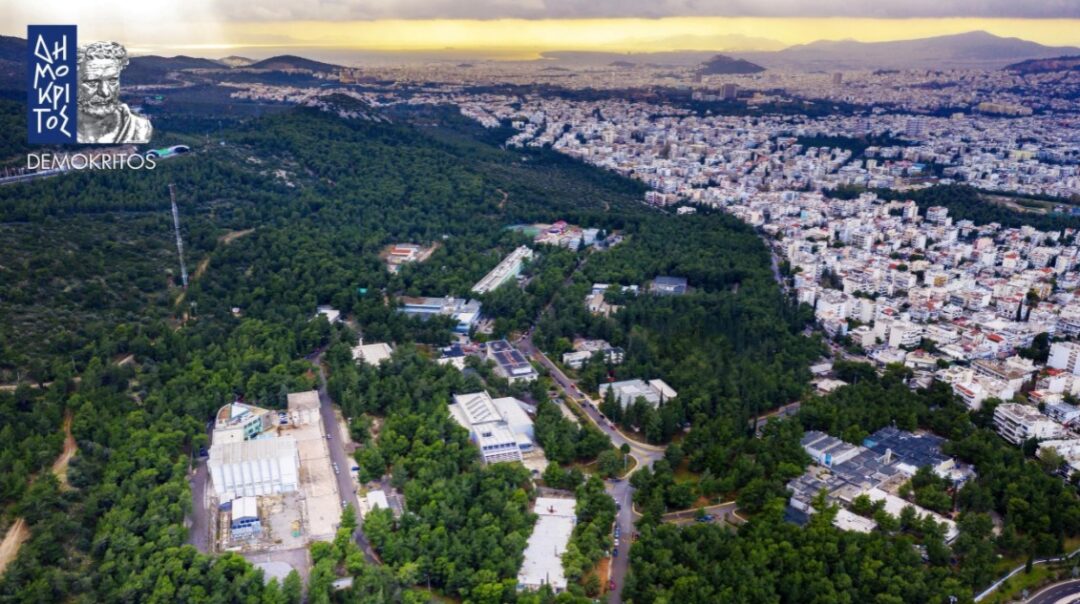
What is more, Demokritos, in collaboration with the National Centre for Social Research (EKKE) and under the auspices of the Special Secretariat of Foresight, produced the first strategic Foresight study in Greece on the use of Generative Artificial Intelligence. This pioneering study maps the future of artificial intelligence in Greece until 2030 and formulates four scenarios, of which it favors the positive one of techno-social acceleration, due to the strengthening of investments in data centers and the broader technological modernization of the country.
AI & Telecommunications experiments and a state-of-the-art data center
Dr Karkaletsis outlined some of the “smart” features of the new AI building: “Security-related sensors, such as image recognition for entry, will be deployed throughout, enabling us to know exactly who is inside the building at any given time. Additionally, sensors will monitor lighting, temperature, and air quality. He elaborates on how this building, featuring modern laboratory spaces and serving as a hub for research in technology and telecommunications, will become an invaluable resource for Democritus scientists. “The building will serve as a platform for our experiments in both Artificial Intelligence and Telecommunications. Essentially, the building itself will function as a tool for us—we’ll gather data, analyze it, and develop applications based on our findings.”
“The data center slated for completion within the same premises is expected to cover the overall needs of Demokritos in data production and processing – with takes place in all Institutes. Furthermore, it will facilitate the Center’s initiatives and partnerships with other research entities in Greece and abroad. “This is a critical component that is currently lacking. Currently, there are decentralized, small-scale computing centers scattered across Demokritos’ Institutes. The plan is to integrate these into a centralized data center that will comply with the highest data security and maintenance standards,” Dr. Karkaletsis explains.

The first Greek experts in quantum technologies
Following the construction of the AI building, there are plans to establish four additional autonomous facilities on the 600-acre campus. Each of these spaces will be dedicated to housing nanotechnology, quantum computing, autonomous micromechanical and microelectronics microsystems, as well as accommodating the numerous startups currently dispersed throughout Demokritos. Dr. George Nounesis elaborates on the establishment of the Institute for Quantum Technologies, which will be marking a groundbreaking development for Greece.
“For the past two years, Demokritos, in partnership with Democritus University of Thrace, has been preparing the first cohort of Greek scientists who will become experts in quantum computing. Twenty-five new students are being enrolled in this program annually,” he informs “K,” and further states, “In a few years, quantum computers are anticipated to revolutionize everything we understand, from cryptography and security, to advancements in medicine, energy, banking, and defense. Quantum technology is intricately linked to the future of artificial intelligence because, as rapidly as A.I. progresses, it requires the computational infrastructure to reach its potential. A.I. cannot advance significantly on its own; progress must be made simultaneously across all related areas.”
Looking back at the rich history of Demokritos Dr Karkaletsis points out: “In the 1970s, graduates from foreign universities who specialized in Artificial Intelligence began to arrive at Demokritos; established in 1961 as a Nuclear Research Center Demokritos in the 1961, Demokritos became then the ‘cradle’ of Artificial Intelligence in Greece. These graduades went on to work at Demokritos on image processing, neural networks (which later evolved into deep learning), and natural language processing.
“At that time, there was no other research organization in the country focusing on these areas”. Even during the 1990s, when he himself was working on Artificial Intelligence at Demokritos, data and computing resources were limited, meaning that AI remained confined within laboratory settings.
“Things began to change in the 2000s when we gained access to more computing resources and data, but the real AI ‘explosion’ occurred in the 2010s,” Dr. Karkaletsis highlights. “Through machine learning, i.e. providing the computer with extensive data and training it, A.I. began to transition from laboratory environments to society, as applications usable by humans were being developed.”
The need for a regulatory framework on A.I. – Generative AI Greece 2030
These developments in A.I. culminated in the release of artificial intelligence chatbot ChatGPT in November 2022. “We’re witnessing the emergence of impressive technology, but without a clearly defined framework for its utilization. The quick pace of technological evolution makes the establishment of regulatory guidelines absolutely necessary,” remarks Dr. Karkaletsis.
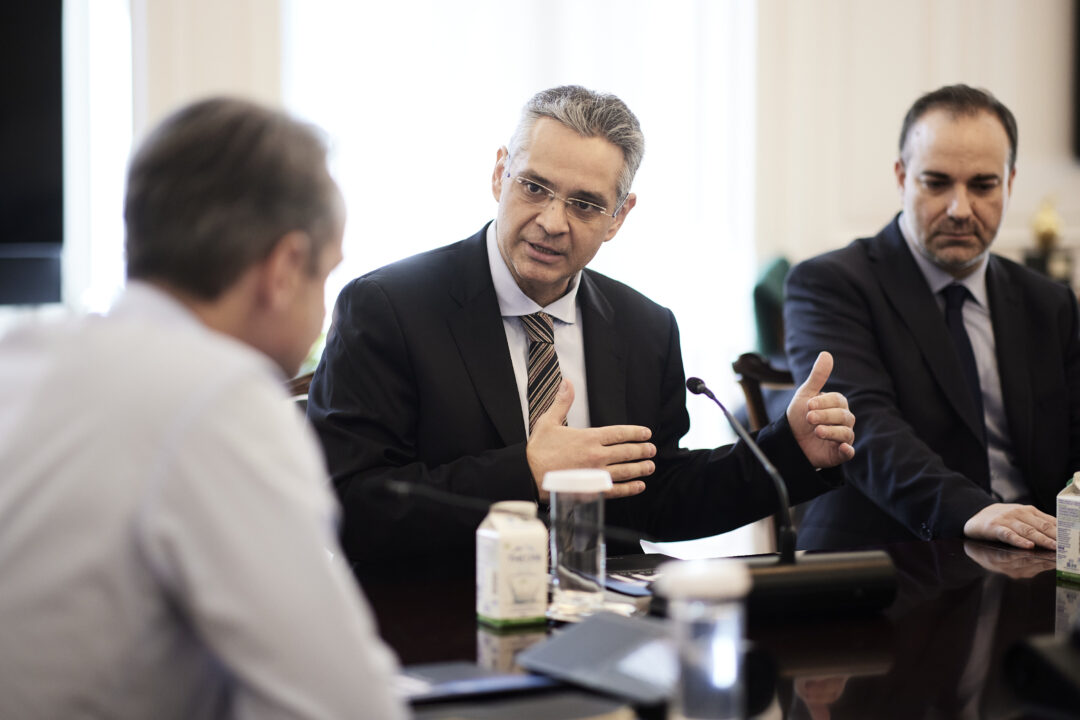
Recently, his team, in collaboration with the National Center for Social Research (EKKE), and with the support of the Special Secretariat of Foresight presented a study to the prime minister outlining various scenarios on the future of Generative Artificial Intelligence in Greece by 2030. Titled “Generative AI Greece 2030,” the study presents trends opportunities, challenges, uncertainties and possible options that will shape the future of the Gen AI ecosystem in Greece. Similar studies had already been conducted in other European countries, such as Germany and Finland, approximately a year and a half earlier.
The study provides a framework of proposed strategic initiatives and policy recommendations, drawing on the collective knowledge and foresight perceptions of a sample of Greek experts/specialists on the impact of the domestic Gen AI ecosystem, in the time frame of 2030.
“This initiative was long overdue in Greece. We examined global trends, the local context, and existing uncertainties, such as the availability of domestic data and computing resources. Based on these factors and vulnerabilities, we formulated scenarios and proposed the implementation of the most viable scenario by 2030,” explains Dr. Karkaletsis.
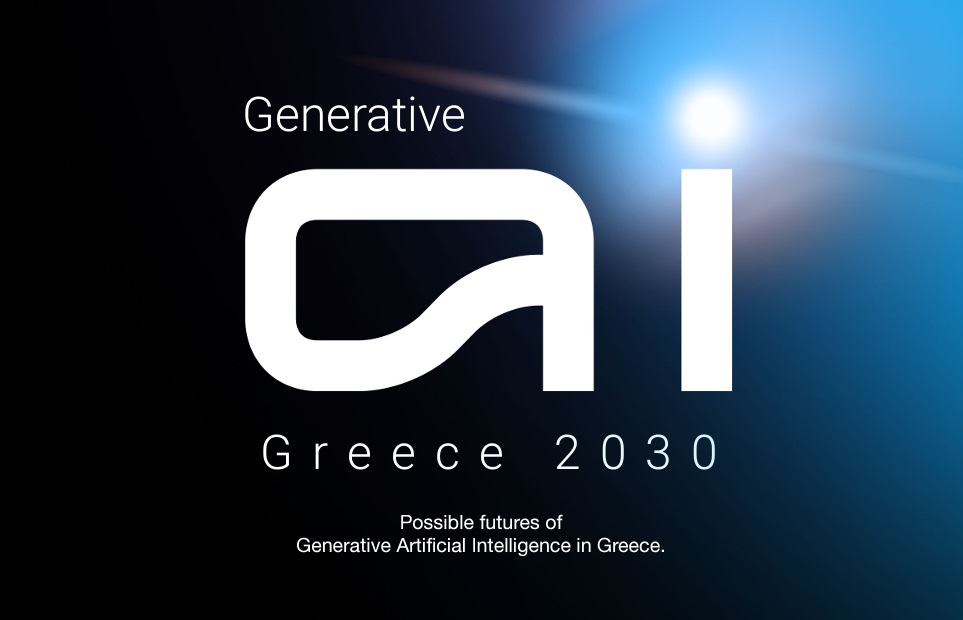
The global geopolitical and geo-economic order is becoming increasingly uncertain, complex and unstable. Gen AI seems to amplify these systemic features, highlighting the need for an ‘exponential’ and future-oriented way of thinking. We cannot be sure what the future holds, nor can we avoid constant disruption in an era of perma-crisis. But it is up to us to harness this generalized uncertainty/complexity, set long-term goals, adapt institutions and mindsets, be adequately prepared and work towards the most favorable scenario – i.e., the ‘technosocial acceleration’ scenario – to enhance the country’s capacity for sustainable growth and resilient prosperity, based on dynamic diagnoses of the trends, uncertainties and opportunities emerging around us.
This research presents four scenarios of possible alternative future images of Gen AI in Greece by 2030. The first is called “techno-social acceleration”, where the world is described as adaptable and freed from technophobic entanglements, while the sustainability and value of the Gen AI ecosystem are at a high level accompanied by a fairly resilient liberal political system. In the second scenario, the “techno-dwarf”, the open economy and a set of favorable political intentions prevail, but the GEN AI ecosystem loses momentum and is not a priority due to excessive regulations and strict bureaucratic rules. The third scenario is described by the term ‘technosocial tarriness‘. It represents a stunted or underdeveloped Gen AI ecosystem in a closed and technophobic world, alongside a significant lack of ethical and regulatory frameworks, public policies, and institutional interventions. The fourth scenario depicts a “techno-giant” with feeble, poor legs and represents a Gen AI ecosystem that reflects the global technological boom, but within a socio-cultural and political environment that is unable to turn speed into adaptation, to integrate modern techno-evolutions and to exploit the possibilities and opportunities they offer.
I.L.
TAGS: ARTIFICIAL INTELLIGENCE | TECHNOLOGY

